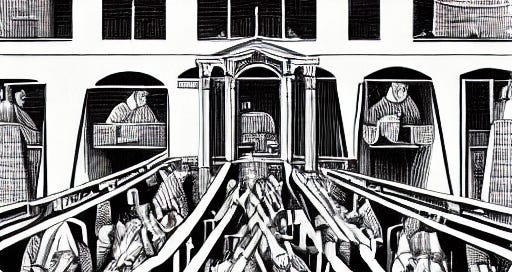Before ISIS, there were others—groups that gave meaning and structure to Emanuel’s life.
“First it was with gangs in Rochester,” his attorney explained. Emanuel’s brief terms, and shifting allegiances, with the city’s criminal groups worried his father. “The boy is impressionable,” Omar Lutchman told NBC News; “he was a Blood, then he was a Crip.” And then he committed a crime that, in one respect, set him on a new path.
Emanuel was 16. He and two friends accosted a man, taking his “cell phone, baseball hat, bus pass, library cards, and cigarettes.” His punishment was five years—five years—in Attica Correctional Facility, starting in 2006.
That’s where he converted to Islam. “His grandmother said he did that because another inmate had attempted to rape him and he needed protection,” Rochester’s Democrat & Chronicle reported.
Pressured as it was, this decision reforged his identity. Arabic phrases fill his emails (sent via CorrLinks)—brief letters describing daily prayer routines, efforts to center Islam as he works to make sense of his life, the legal system, the broader world. “Take care and stay prayed up and dangerous,” reads a typical sign-off. “May Allaah guide you to the religion of Prophet Abraham.”
Multiple sources confirm Emanuel’s drift through gangs to Islam, and these sources were on his side: his family, his attorney. But there’s something depressing about this conception of him—however driven by legal considerations—as a hollow man, a “shape without form,” susceptible to whatever his surroundings present.
And it’s an image his memoir undermines.



